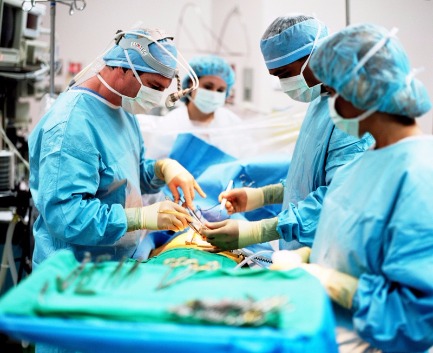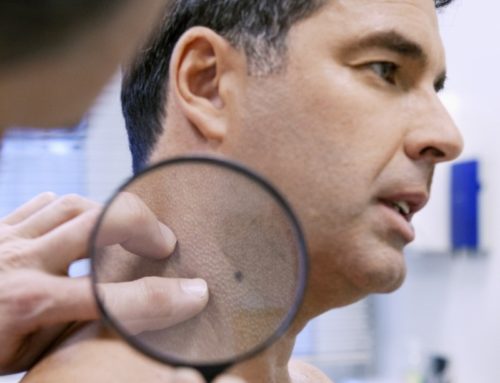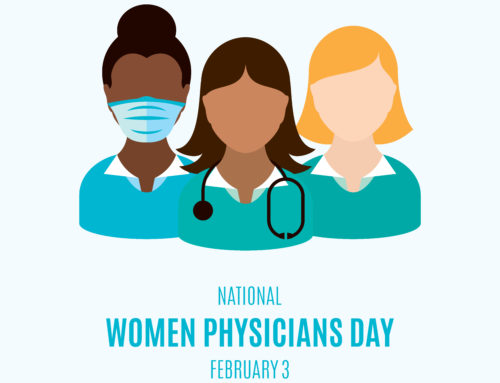 Most people never think about their appendix – until it’s causing them severe pain. But what is the appendix and what does it do? Dr. Benjamin Kellogg, board-certified general surgeon with University Surgical Associates, shares the ins and out of your appendix, its function in the body, and when surgery might be necessary.
Most people never think about their appendix – until it’s causing them severe pain. But what is the appendix and what does it do? Dr. Benjamin Kellogg, board-certified general surgeon with University Surgical Associates, shares the ins and out of your appendix, its function in the body, and when surgery might be necessary.WHAT DOES THE APPENDIX DO?
The appendix is a small, finger-shaped pouch attached to the start of the large intestine on the lower right side of the abdomen. Its job is to protect good bacteria in the gut. It’s suggested that the good bacteria housed in the appendix can repopulate the digestive system and help you recover from infections after you experience diarrhea or another illness. Most people only think about their appendix when it becomes inflamed, requiring an emergency procedure to have it removed.
“This inflammation of the appendix is called appendicitis. It’s a medical emergency that can quickly evolve into a life-threatening situation if not treated right away. Without treatment, an inflamed appendix can rupture and cause a potentially fatal infection,” says Dr. Kellogg.
WHAT ARE THE CAUSES AND SYMPTOMS OF APPENDICITIS?
Appendicitis is usually caused by a blockage of fecal matter inside the appendix. The lining of the appendix and the intestines work to fight bacterial infections and can swell, leading to the obstruction. It can also be caused by a traumatic abdominal injury, tumors or a foreign body (like something being swallowed or an intrauterine device).
“Symptoms of appendicitis are wide ranging – what starts with bloating and pain around the belly button routinely moves to the lower right side of the stomach and becomes sharp and continuous,” says Dr. Kellogg. “Your belly will most likely be tender to the touch, and sneezing, coughing, deep breathing or sudden movements can cause the pain to intensify.”
There are other “classic” symptoms of appendicitis, including:
· Nausea, vomiting or loss of appetite
· Diarrhea or constipation
· Fever that begins after the other symptoms
· Swollen and/or tender abdomen
Others experience pain with urination, the inability to urinate, or the frequent urge to urinate. This happens when the swollen appendix is close to the bladder and urinary tract. These symptoms are a clear warning that urgent medical attention is necessary.


A SAFE AND EFFECTIVE SOLUTION
According to the American Medical Association and the American College of Surgeons, appendectomies are one of the most common surgical procedures performed today. When possible, Dr. Kellogg uses laparoscopic techniques to remove the appendix without an open incision. Laparoscopic technology means the procedure can be performed with three small incisions (1/4” to ½”) while watching the magnified image of the patient’s internal organs on a television monitor.
Advantages of laparoscopic techniques often include less pain after the procedure, a shorter hospital stay, a quicker return to normal activity (including bowel function) and less scaring. In some cases, laparoscopic appendectomy is more difficult when there’s advanced infection or if the appendix has ruptured. In these cases, a traditional open procedure may be required to remove appendix safely.
THE RISKS EXPLAINED
Even though there are risks associated with any surgical procedure, they are much less severe than those that come with untreated appendicitis. The procedure is often done on an emergent basis because it can prevent abscesses and peritonitis (an inflammation of the membrane that lines your inner abdominal wall and covers the organs inside your abdomen) from developing.Although appendicitis occurs more often in children and young adults, the risk of rupture is highest in older adults. A person’s lifetime risk of developing the condition is between seven and 14 percent.
DON’T TOUGH IT OUT
“Appendicitis is serious and can result in death without timely treatment. An inflamed appendix can rupture in two to three days after symptoms begin. Even if your symptoms aren’t typical (i.e. stabbing abdominal pain), you need to act quickly,” says Dr. Kellogg. “Because a ruptured appendix can spill dangerous organism throughout the abdomen, it’s important to see a doctor as soon as possible.”
Dr. Kellogg has office hours at USA’s Dayton office on Monday (9 a.m. – 1 p.m.), Tuesday (1 – 4 p.m.) and Friday (9 a.m. – 1 p.m.). Dr. Kellogg performs surgery at Rhea County Medical Center, Plaza Surgery Center at Erlanger, Erlanger Medical Mall and at Erlanger Hospital. For more information or scheduling, call (423) 267-0466






Leave A Comment